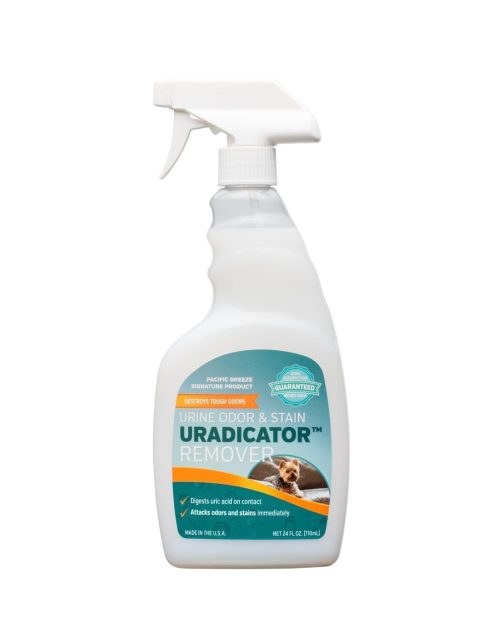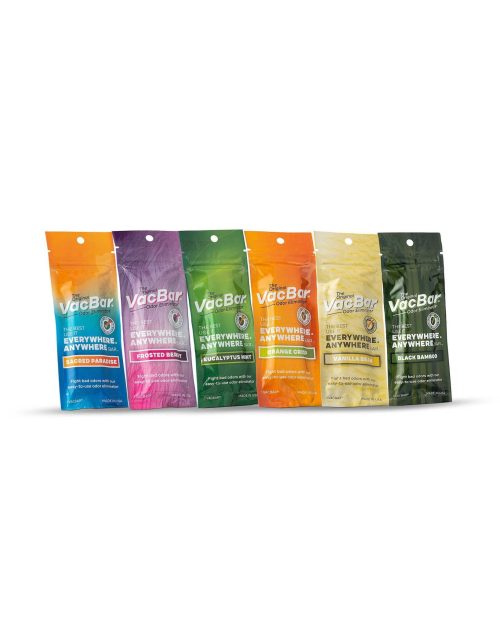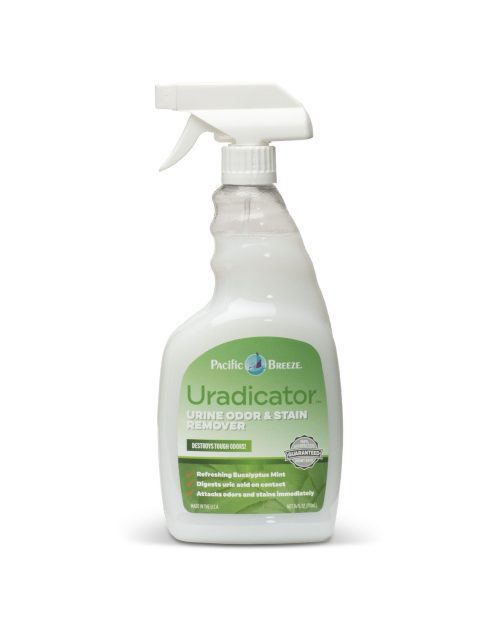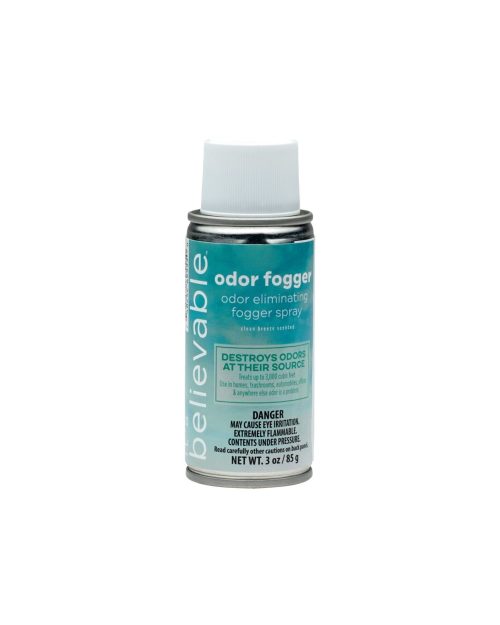If you don’t like being greeted by unpleasant smells in your home, you’re not alone. Every single home has at least one area capable of pungent, pesky odors. You do everything at home from eating to sleeping to going to the bathroom, so it’s completely normal to have the occasional smelly area.
It’s also normal to have recurring sources of odors — some areas of your home are stubborn and need to be cleaned and deodorized frequently. If you’re just noticing these odors, or if you’re confused as to where they’re coming from or why they keep coming back, this article is for you.
We’re going to cover 15 sources of recurrent and popular odors. We’re also going to teach you what to do about them. Every problematic odor has a long-term solution, and we have it for you. Read on to find out how to make your home smell the way you want it to.

- Trash cans. They might not come to mind too often, especially if you’re regularly changing the trash bag. The outside of your can might look fine, but have you checked the inside of it lately? Residue from old food and liquid builds up in there. A lot of the time, you can’t even smell it when you’re standing over the can. The smell travels throughout the house, causing you to go on a scavenger hunt to find the odors. Try cleaning it out once a week. You can either spray it down with some disinfectant or you can take it out back with the hose and some soap.

- Kitchen and bathroom drains. Drains are tricky because they can often smell normal, only to release pungent odors at night or at certain times of the day. A problematic drain doesn’t always have a constant smell. Try keeping your drains clean by pouring bleach or white wine vinegar down them every week. Another natural and easy option is to make sure you’re pouring boiling water down your drains a few times a week. (This trick doesn’t always work for stubborn drain smells.)

- The furniture. If you have pets, your furniture is one of the largest sources of odors in your home. If your fur babies are couch-lounging, chances are, you need a cleaning regimen for your furniture. This isn’t something that needs to be done every single day or even every week. But it should be taken into account — especially when you’re doing your deep cleaning. If your couch covers are removable, throw them in the wash. If not, try and spot clean as you go. The most important thing, however, is to have an amazing deodorizer. You need something that you can trust to zap those odors before they become problematic. If you use your deodorizer alongside your washing routine, your furniture won’t be a source of odors any longer.
- Foundation of the house. How long has it been since you got the foundation checked in your home? If you live in an older home, the foundation could be a source of consistent odors. Especially if it’s riddled with moisture or mold. If it has been too long to remember, consider having it checked out. Someone will either tell you it’s doing fine or they’ll help you handle the problem.
- Rotten or spoiled food. It’s easy to overlook old food. Especially if you have a large pantry where things can hide. Did you know something as simple as old bread can stink up your entire pantry? And worse — it can cause odors throughout the home. That kind of smell travels. Try to make sure you’re checking your pantry every week for unwanted/old food. A good wipe-down every couple of weeks is necessary, as well. If you can smell something a little “off” in your pantry but you don’t see anything, look a little harder!

- Dirty carpets or floors. So you vacuum your carpeting and mop your floors whenever you see dirt, right? That’s great — but floors are sneaky. There are baseboards and porous surfaces where bacteria like to hide. It becomes a problem when tricky odors get caught in the pores of your floors, so it’s important to deep clean your floors (and frequently!) Try to use a floor cleaner that also has a deodorizer built into it. Pacific breeze has a great pH neutral floor cleaner that will take care of that.

- Wet clothes or towels. The smell of moldy clothes is a special kind of horror. The odor hits your nose differently. There is nothing like it. The second that musty smell hits your nostrils, you know what it is. There are certain precautions you can take. Hanging up your towels is the main one. A lot of times, especially if you have a large family, those towels get thrown into the laundry with a lot of other clothes. This causes the clothes surrounding the towels to get wet, as well. This isn’t something you can always prevent. No matter how many times you politely ask, kids won’t always hang up their towels and you’ll end up getting that nasty smell. Since you can’t do laundry every day, it’s a great idea to have some reliable deodorizer on hand. That way, your bathroom and bedrooms will smell fresh between washes.

- Lingering food or smoke. Every time you cook, those odors are implanting themselves into the walls surrounding the stove. Sure, it smells great at the time. But the next day — not so much. You can’t always pinpoint where the smell is coming from, you just know that your kitchen doesn’t smell “quite right” (or that it smells like last night’s fish). If you’re a smoker, you may notice those smells in every room. This is because smoke gets into the pores of the walls. Old cigarette smoke doesn’t smell like cigarettes, either. It often has a musty, moldy smell. Next time this happens, give your walls a good scrub-down. You can get those odors out with some simple white wine vinegar spray. An ozone generator can also do wonders for smokey smells.
- Fabric and draperies. Any kind of fabric is going to attract odors. Think of your drapes as nets. They will catch all of the bacteria and odors coming their way. Your drapes need to be regularly thrown into the washer. If you have heavy drapes or drapes that aren’t able to go into the washing machine, that’s okay. Keeping a reliable fabric deodorant on hand will work fine until you can get them dry-cleaned.

- Sponges. Kitchen sponges hold, by far, more bacteria than anything else in your kitchen (including your trash can). They accumulate mold and mildew, too. In as little as 1-2 days, your kitchen sponge will start to smell. You can stop the odors by putting your sponges in the top rack of your dishwasher a couple of times a week. Don’t forget to ring them out immediately after they’re washed so that they don’t accumulate more moisture. Remember to replace them every 2-4 weeks, as well. You don’t want the bacteria from your sponge moving onto your plates and glasses. You can also clean them by soaking them in natural cleaning solutions (like vinegar).
- Gym bags. When was the last time you threw your gym bag in the washing machine? It doesn’t get a lot of attention, does it? Gym bags are usually left in the backseats of cars or in the garage. They carry sweaty, grimy clothes and shoes in them. Who wants them in the house? The problem with this is that now, not only is that bag smelling up your car or garage, it’s also implanting odors in the things around it! A lot of gym bags are made out of latex or vinyl, so putting the bag in the washing machine may not be an option. Try sticking a deodorizer in your bag to make the smells a little more subtle.

- Vacuum cleaners. Vacuum cleaners are puzzling because they are supposed to smell fine once you change the bag. Unfortunately, especially for older vacuum cleaners, this isn’t always the case. The dust and debris from your floor travels into the vacuum’s mechanisms and tubes, leaving behind musty odors. Your floor should smell great when you’re done cleaning it, but some vacuum cleaners achieve the opposite effect. If this is the case with your vacuum cleaner, make sure it’s being cleaned regularly. Take out the tubing and wash it out with soap and water. And in between washes, a vacuum bar can come in handy by deodorizing your vacuum bag and leaving a fresh smell on your carpet.

- The refrigerator. It’s always smart to go through your fridge once a week to clean out any rotting vegetables or old food to stop odors. These are the most obvious things that cause odors. It’s also a good idea to deep clean your refrigerator once every 3 months or so. Here’s a fun trick: leave an open container of baking soda in your fridge in between washings. This simple technique will kill odors before they have a chance to take hold and invade your kitchen.

- The toilet. Did you know that your toilet holds water in that pipe you see behind it? The pipe has a dip where it goes down and then comes back up. Dirty water is stored in that little divot, so you’re going to frequently have odors coming from there. Aside from cleaning your toilet once a week, you can also flush your toilet a few times to get those odors out. If you have company coming, you might want to try that. If you’re going on vacation for a while, flush the dirty water down a few times before you leave. Flush it again when you come home to prevent odors. There are also a couple of things you can do in between washes, but the best trick is to throw a couple of antacid tablets in the toilet bowl. Even if you can’t scrub afterward, the tablets will help the dirt and grime come loose. That way, when you flush, a lot of bacteria goes down with the water.
- Having a lack of deodorizers. If you want a home that smells fresh and clean on a regular basis, it’s imperative to have deodorizers handy. There are many options available, including drawer deodorizers, dumpster deodorizers, trash deodorizers, refrigerator deodorizers, and even spray deodorizers for furniture or fabrics. In between washes, all you can do is keep things as clean as you can. And for the days that you don’t have time to scrub toilets or refrigerators, deodorizers will mask unpleasant smells. This makes your home inviting. It also makes your home the ideal place to relax. Having children and pets shouldn’t take away from the cleanliness of your home. There are always options!







